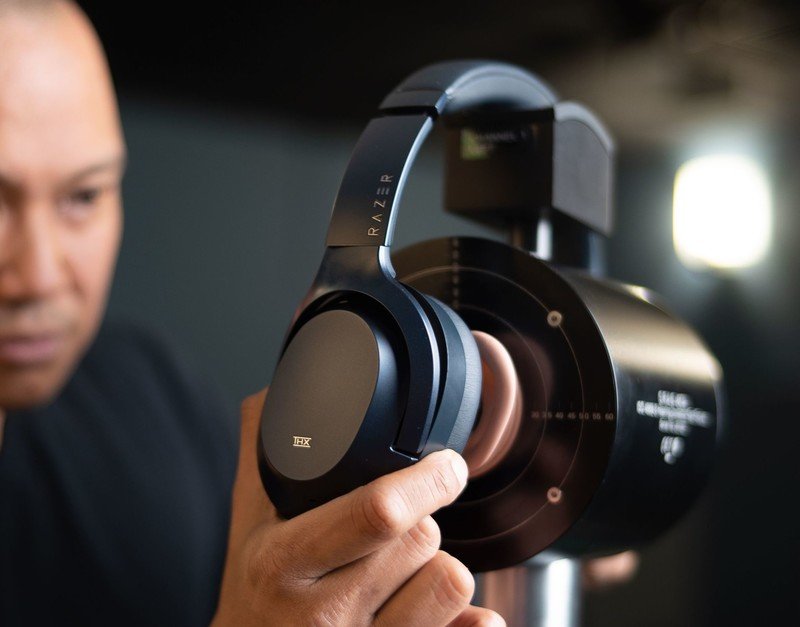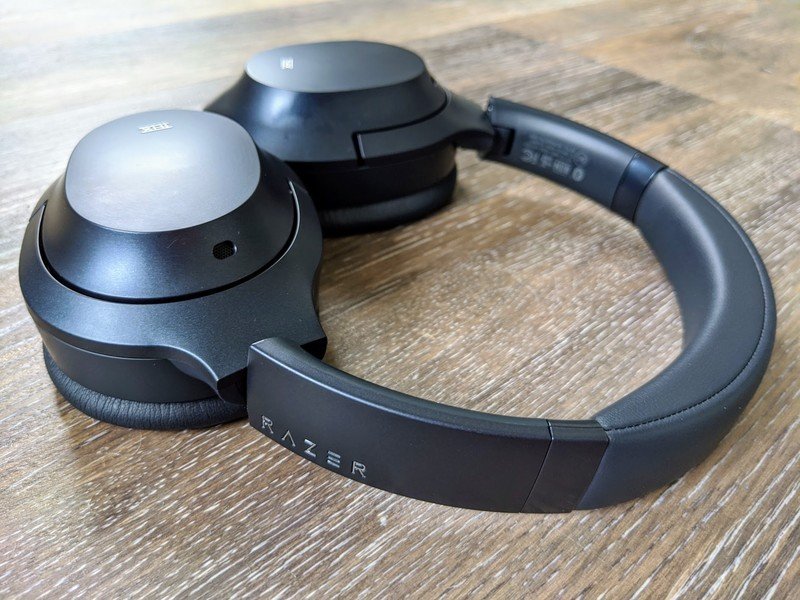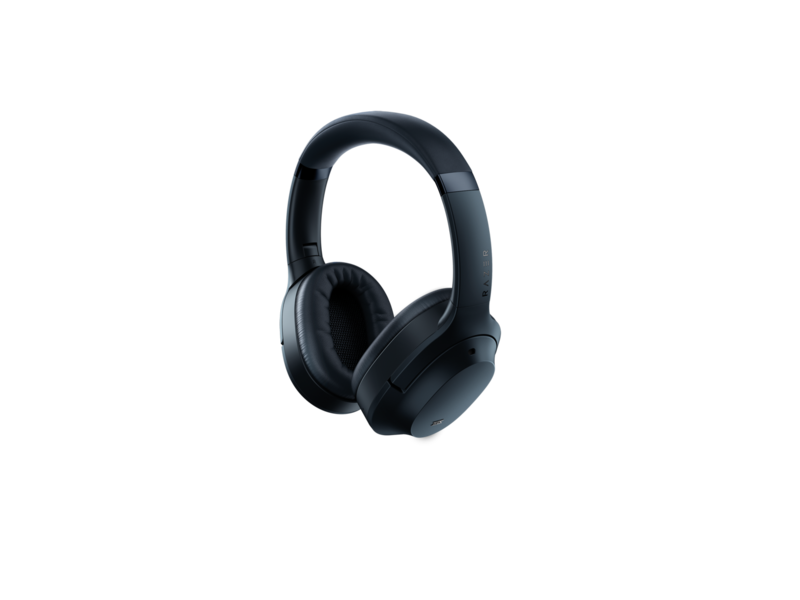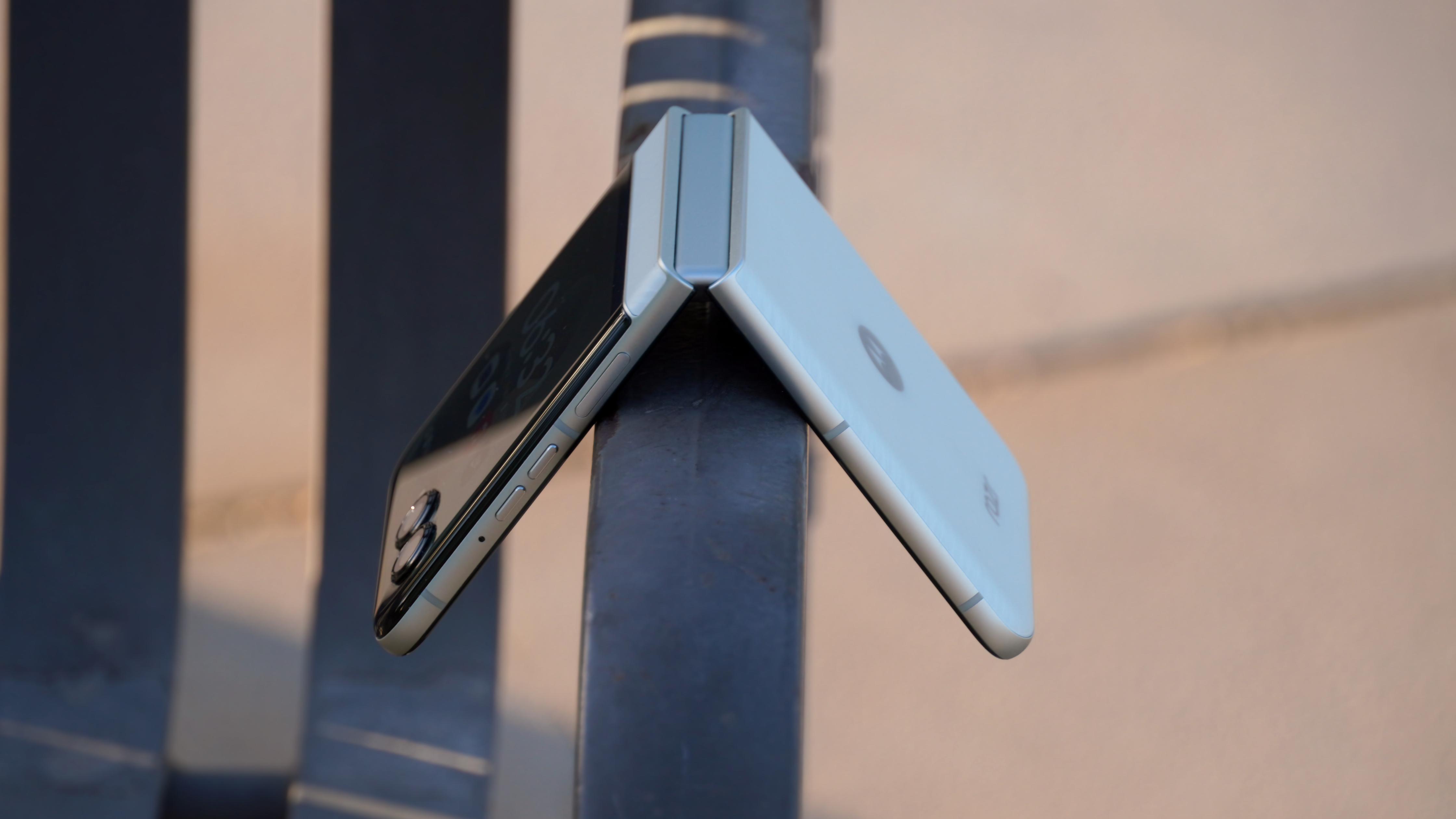Android Central Verdict
Bottom line: Razer's understated design hides a powerhouse of audio quality at a price point few are going to be able to compete with.
Pros
- +
Extremely comfortable
- +
Great active noise-canceling
- +
THX-certified quality audio
- +
USB-C port
- +
Lots of accessories
Cons
- -
Microphone could be better
- -
Battery is just okay
- -
Audio leakage is a thing
Why you can trust Android Central
The high-end headphone market is more than a little crowded these days, and very few of these products are worth the $300+ price tag you see when wandering through an electronics store. The few truly excellent headphones stand out, and they're the names you hear just about everyone recommending. As a result, it's more than a little difficult to break into this space with a new set of headphones.
This did not discourage Razer in the slightest, and it's not hard to see why. Breaking into markets that are more than a little crowded and being successful seems to be what this company was made to do. Its gaming hardware has taken the world by storm, its laptops continue to reshape the industry, and now there are these headphones. Unlike the other two success stories, Razer knew it couldn't just bust in and be loud to get attention. The people who buy these headphones are a little older than your average self-professed hardcore gamer, and a lot more discerning about what they spend their money on.
And after a few weeks with these headphones, it's going to be difficult for me to recommend anything else.
Razer Opus: What won me over

Out of the box, it's clear this is not the stereotypical Razer product. Gone is the loud neon green against a jet black with hard angles and brilliant LEDs you see with just about every product with the Razer logo across it. This design has soft curves, plush leatherette padding, and shiny tactile buttons. The Razer logo is smaller and less stylized than I'm accustomed to, and the logo shares space with a pair of matching THX logos on the cups. This is visually unlike any Razer headset I have ever used before, and I have used most of them.
Inside the padded travel case the headphones rest in when removed from the packaging, you'll find a healthy collection of accessories. A microfiber pouch conceals a 3.5mm cable, as well as a USB-C cable for charging (THANK YOU, RAZER) with a 3.5mm adapter and USB-A to USB-C adapter, is tucked away in the middle of the case. Everything about these headphones, from the matte blue coating to the casing stuffed with goodies, tells you who Razer is hoping to capture with these headphones. The Razer Opus isn't just for the hardcore gamer; it's for everyone who cares about decent audio.
It couldn't be more clear these headphones were made by people who really care about an all-around quality experience they can use anywhere.
The padded cups form a nice seal around my ears, with a comfortable enough band which strikes a nearly perfect balance between squeezing my brain and sliding off my head when I look up at someone from my desk. The buttons on the headset are fairly standard; the volume and control buttons are on the right side with power and noise-cancelation is on the left. The ANC button includes an ambient mode, which allows audio from the real world to pass through to you when you need it, but otherwise, this setup feels pretty standard.
Razer uses a Hybrid ANC approach with Razer Opus. The four-microphone array on the headset works to remove external sounds, so you're completely immersed in what you're listening to. Plus, it does so without creating that disorienting fishbowl effect you get with so many noise-canceling headphones. Because we're all stuck at home right now, I haven't been able to test these headphones on an airplane, which is my usual test for headphones like these. Still, I can say I was able to walk down a busy street with multiple tractor trailers comfortably, and easily 90% of their engine sound was gone.
Get the latest news from Android Central, your trusted companion in the world of Android
When coupled with the Razer Opus app on your phone, there are some basic controls over audio tuning. By default, Razer keeps you in the standard THX tuning. If you'd prefer your music to have a little more "character," as I do, you can put the headphones into the Amplified profile with a tap. There's also presets for vocals, clarity, and bass if you so choose. You can't currently tweak to your own liking right now, but the current presets are pretty good. The rest of the app is fairly minimal, giving you some basic settings for how you want the on-head detection to work and things like that.

I've used a lot of headphones with some form of on-head detection, and Razer's is the only one I've actually enjoyed using. If I slide one cup off my ear a few inches to hear someone, the music pauses. If I put it back, the music immediately restarts. If I take the headphones off completely and set them down, the music pauses and the headphones will turn off after a few minutes of inactivity. It works well, and it works consistently, something you don't get often.
What Razer has assembled here is nothing short of impressive. It couldn't be more clear these headphones were made by people who really care about an all-around quality experience they can use anywhere.
Razer Opus: What could be better

The four microphones on the Razer Opus do a great job of keeping the rest of the world out of your ears, but they're somewhat less great at sharing your voice with the rest of the world. If you're in a small room with little background noise, the microphone isn't too bad. But if you have any kind of other sounds in the area or you're in a larger room, your voice can get drowned out, or you sound like you're far away from the microphone. There's a limit to what you can accomplish with this physical design, but these microphones for phone calls are just okay.
Razer's marketing materials say you get 25 hours of battery with the Opus, which is at least five hours less than many other headphones in this category claim. And in my testing, that battery life was much closer to 21-22 hours of battery life. I found myself putting the headphones on the charger at the end of the day just to make sure I didn't have a dead battery halfway through the next day. Then again, I'm a somewhat of a more "extreme use" case in how long I'm at a desk with headphones on. It is worth pointing out the headphones still work perfectly when plugged in and charging, but it would still be better if these headphones could deliver closer to 40 hours on a charge.
Hybrid ANC means most of the real world is kicked out of your ears, but the plush leatherette padding isn't enough to keep the rest of the world from hearing what you're listening to. When tested with several people in a quiet room, they could each guess what song I was listening to with about 80% accuracy. This is unlikely to be a problem on a busy subway or airplane, but we're all sitting on the couch with our loved ones right now, and they're absolutely going to hear what you're doing.
Razer Opus: You should buy these

These are, without a doubt, the best over-the-ear headphones you can buy for $200. Razer's usually loud personality with its product design has been replaced by something considerably more subtle. Still, it has taken nothing away from how impressed you will be with the audio quality and comfort.
4.5 out of 5
If you have the cash to spend, your ears will thank you for using these incredible headphones every day.



